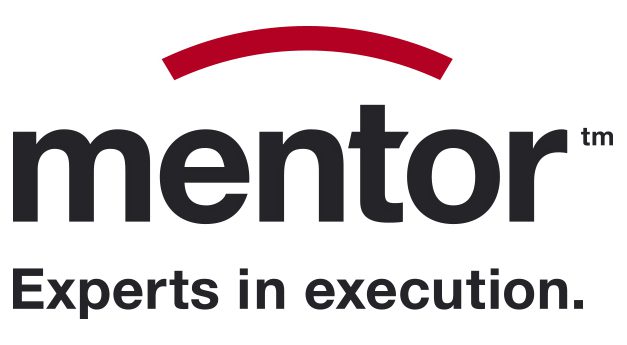6 Questions Every CEO Must Answer to Successfully Transform a Business
Without alignment, it’s over…
CEO’s run business-critical programs for a good reason. They are vital for the future success of a business.
History is littered with examples of seemingly invincible organisations falling short by failing to adapt to changing trends and competitive forces…Nokia, Blackberry, Kodak and We Work…to name just four.
These examples are far from the exception. In my 30+ years’ experience, 119 of the 130 business-critical programs we’ve been involved in, true alignment – fundamental to strategic execution success – was missing in every case.
Worryingly, most of the CEOs involved genuinely believed their people and organisation were fully aligned behind the business-critical program’s objectives and strategy.
Why did this happen?
Blind spots and biases prevent CEOs and senior execs seeing the true picture.
They were under a dangerous illusion assuming everyone involved, especially those doing the work, were fully on board. The reality was that there was often little consultation with unrealistic timescales and a lack of resources imposed upon the teams.
And this illusion of alignment means that a strategic program is holed below the waterline before it’s left harbour.
Failure has effectively been designed in.
So, how can you see the true picture and accurately assess the level of alignment behind a business-critical program in an organisation?
I can share with you the 6 questions I always ask when called in by a despairing CEO whose program is struggling with costly overruns and delays.
By asking yourself these questions, and more importantly answering them honestly, you will be in a much better position to assess the real level of alignment you need to successfully steer your entire organisation through these hugely complex programs.
1. What is the vision driving this strategic program, and how does it align with your long-term strategy?
- This question tests whether a CEO can clearly articulate a vision that connects the transformation to the company’s broader strategic goals.
- Genuine alignment will show that the program is seen as a necessity for long-term success, not just a short-term fix.
2. How are you personally involved in championing this business-critical program?
- A CEO’s personal commitment is crucial. This question reveals if a CEO is actively leading and visible in the strategic transformation efforts or if they are delegating it to others.
- Genuine involvement means being a hands-on sponsor, motivating the team, and breaking down barriers.
- This involves evaluating the effectiveness of the communications throughout the organisation and beyond with feedback loops in both directions.
3. How are you ensuring that your leadership team and those doing the work are fully aligned and committed to this program?
- True alignment happens when the whole leadership team is on board. It’s easy to assume everyone is aligned when 6 like-minded people in the exec team are in agreement. This question assesses whether the CEO has a practical plan for cascading the vision and ensuring that every department and leader supports the change.
- Firstly, ask your senior exec team. Then ask those doing the work. This will highlight any disconnects between the two. That’s the gap that needs to be plugged. Without this, there’s a lack of follow-through to test how well-aligned the team really is.
- In our experience, executive teams often assume that everyone is aligned and fully aware of their responsibilities. In reality, however, it’s common for those tasked with executing the work to lack clarity on expectations and requirements.
- This question will also tease out any pockets of “selective resistance” amongst the teams. who you may feel are aligned but have an in-built resistance to what you’re expecting.
4. What metrics and milestones are you using to measure the success of this transformation?
- CEOs with genuine alignment will have a clear framework for tracking progress. This shows if they are focused on outcomes, not just the process or the tasks, and whether they are prepared to hold themselves and the organisation accountable for results.
5. How are you addressing potential resistance or challenges that could derail the program?
- This probes whether a CEO is realistic about the difficulties of transformation and has a plan to mitigate resistance, whether cultural, operational, or external. Alignment includes anticipating challenges and proactively tackling them.
- Are all the potential risks, threats and scenarios taken into consideration with contingencies in place?
6. How is this business-critical program reflected in the company’s culture?
- This question provides insight into whether the change brought about by the program is just superficial or deeply embedded within the company’s ethos, indicating true commitment from top leadership and beyond.
Don’t Drop the Ball!
Alignment is just one of the 6 balls you must have in place to execute business-critical programs successfully. Alignment doesn’t just depend on answering these six questions. You also need all of the other five balls in place to safeguard success.
Remember…you can’t afford to drop even one ball!
These are:
Plan: Do you have a robust, adaptable plan that covers all scenarios and risks?
Organisation: Is your program organisation and governance fit for purpose?
Suppliers: Are key suppliers managed effectively, working as part of the team?
Dependencies: Is everyone accountable for their actions?
Culture: Is there a culture of collaboration and trust amongst all team members?
In the next few weeks, I’ll be publishing questions around each of these to help you identify how you measure up for program success.
For a deeper insight, download our Insight Guide “Don’t drop The Ball”, and gain the peace of mind and confidence that your program will achieve its program goals – with clarity and confidence.
About the author
David Hilliard is founder of Mentor, specialists in strategic program execution.
You can call him on 0118 359 2444 or email david.hilliard@mentoreurope.com.

